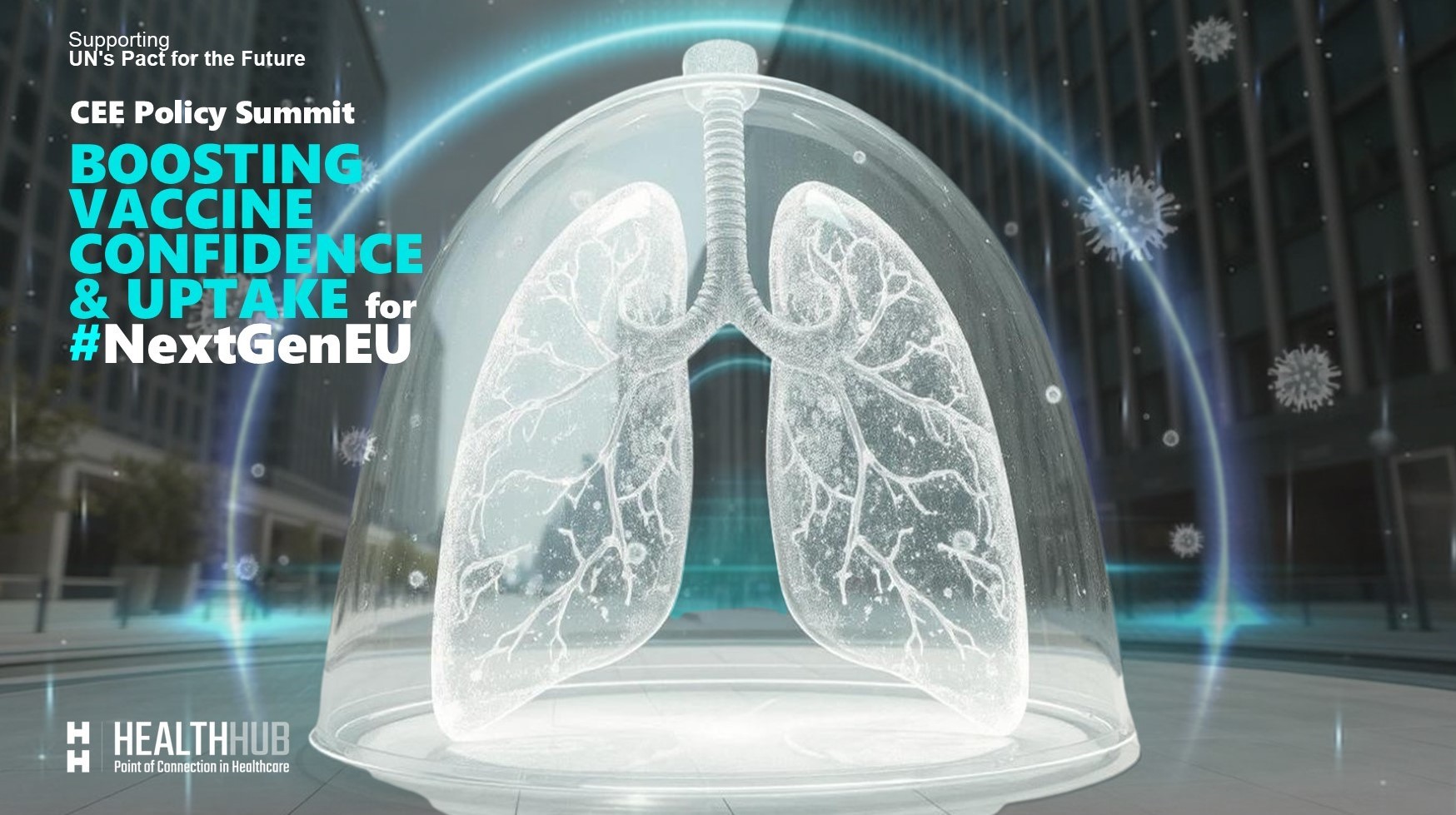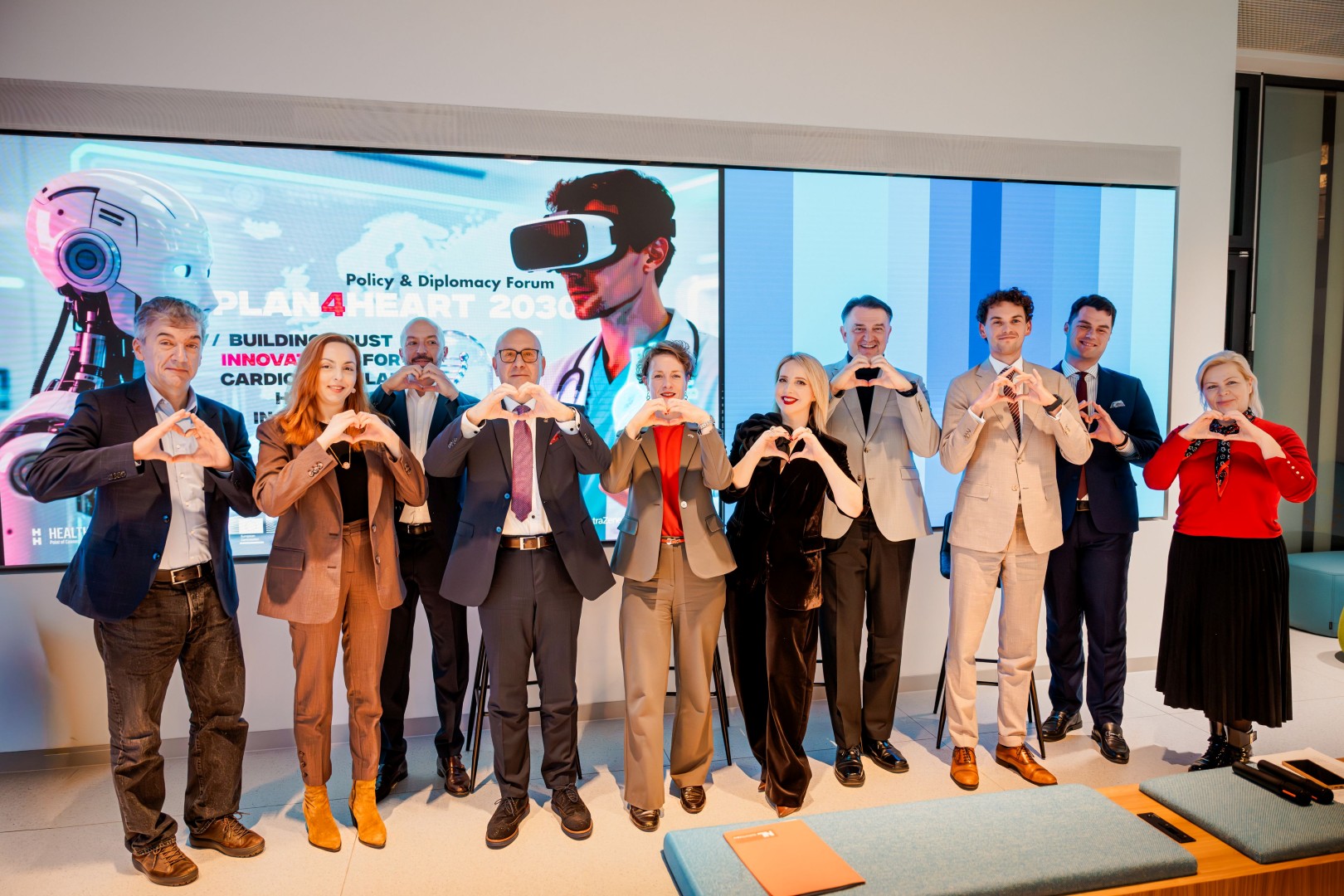Health Hub’s CEE Policy Summit – How UN’s Pact for The Future cover’s public health and immunization policies
he United Nations’ “Pact for the Future” and “Summit for the Future” are initiatives that aim to reshape global governance and address emerging global challenges, including health care and wellbeing. Their impact on healthcare and citizens’ wellbeing can be seen through several key aspects:
- Strengthening Global Health Systems: The Pact emphasizes the importance of universal health coverage (UHC) and strengthening health systems to ensure that all individuals, regardless of their economic status or location, have access to quality care. It aims to foster greater international cooperation in addressing health disparities, including improving health infrastructure in underserved regions.
- Pandemic Preparedness and Response: Building on lessons learned from COVID-19, these initiatives focus on strengthening global preparedness for future pandemics. This includes investing in early warning systems, improving vaccine distribution, and ensuring equitable access to health resources, which can significantly impact citizens’ health and safety.
- Promoting Mental Health and Wellbeing: A key component of the Summit for the Future is a holistic approach to health, incorporating not only physical health but also mental health and social wellbeing. This includes the recognition that mental health is a global issue, and policies will aim to reduce stigma, increase access to mental health services, and promote overall psychological wellbeing.
- Sustainable Development and Healthy Environments: Both initiatives advocate for policies that ensure a clean, safe, and sustainable environment, which directly influences public health. Climate change, pollution, and environmental degradation are recognized as major threats to health, and the initiatives push for greener, healthier policies that benefit both the planet and its citizens.
- Social Determinants of Health: The Pact and Summit also address broader social determinants of health, such as poverty, education, and employment, which have a profound impact on healthcare access and outcomes. By addressing these factors, the initiatives aim to improve overall wellbeing, particularly for marginalized and vulnerable populations.

It was an honor for Health Hub and partners to initiate a dialogue in CEE region on the pivotal role that the United Nations’ “Pact for the Future” and “Summit for the Future” play in shaping the future of global healthcare and the wellbeing of citizens worldwide.
In the face of emerging global challenges, these initiatives provide a critical framework for collective action, ensuring that the health and wellbeing of all individuals remain at the forefront of international policy. The Pact for the Future emphasizes a renewed commitment to universal health coverage, ensuring that no one is left behind in access to essential healthcare services. By strengthening health systems, particularly in vulnerable and underserved regions, it aims to reduce health disparities and improve the quality of life for millions.

Furthermore, the Summit for the Future provides an opportunity for governments, civil society, and the private sector to come together in pursuit of pandemic preparedness, mental health support, and environmental sustainability—all of which are fundamental to ensuring the wellbeing of future generations. From addressing the lessons learned during the COVID-19 pandemic to recognizing the importance of mental health, these initiatives reflect the urgent need to create comprehensive, resilient, and inclusive healthcare systems.
Additionally, the Pact and Summit place a strong emphasis on addressing the social determinants of health—the conditions in which people are born, grow, live, work, and age. By tackling issues such as poverty, education, and inequality, these frameworks foster a holistic approach to wellbeing, creating healthier societies and promoting human dignity.
In conclusion, the Pact for the Future and Summit for the Future represent a bold vision for a healthier, more equitable world. They are a call to action for all of us to collaborate, innovate, and invest in policies that not only address immediate health needs but also ensure a sustainable and prosperous future for all.

The UN’s “Pact for the Future” can be strongly linked to immunization policies through its overarching goals of universal health coverage (UHC), pandemic preparedness, equity, and global health system strengthening. Here’s how the Pact supports and aligns with immunization policies:
-
Universal Health Coverage (UHC) and Immunization Access
The Pact for the Future prioritizes universal health coverage, which aims to ensure that everyone, everywhere, has access to essential health services, including immunization. Immunization policies, underpinned by the Pact, focus on making vaccines accessible to all individuals, regardless of socioeconomic status or geographic location. By strengthening immunization policies, the Pact ensures that vaccines are included as part of essential health services in every country, promoting equal access to life-saving vaccines for all populations, especially marginalized groups.
Link to Immunization Policies:
- Policies supporting universal vaccination programs (e.g., childhood immunization schedules, routine vaccination) are vital to achieving UHC.
- The Pact encourages the integration of immunization into national health policies to ensure consistent, equitable vaccine distribution and access.
-
Pandemic Preparedness and Immunization
The Pact for the Future emphasizes global collaboration and preparedness for future health crises, particularly pandemics. Immunization policies are central to this goal, as vaccines are one of the most effective tools in preventing the spread of infectious diseases. The COVID-19 pandemic underscored the importance of strengthening global vaccine distribution and delivery systems to rapidly respond to new health threats.
Link to Immunization Policies:
- The Pact advocates for robust national and international immunization policies that not only address current vaccine needs but also anticipate future challenges, ensuring that vaccines are developed, tested, and distributed quickly in the event of a new pandemic.
- It promotes the need for global coordination on vaccine research, development, and access through initiatives like GAVI (Global Alliance for Vaccines and Immunization), and the WHO’s Immunization Agenda 2030.
-
Equity and Access to Vaccines
One of the core principles of the Pact for the Future is promoting equity, ensuring that no one is left behind, especially in low- and middle-income countries. Immunization policies within this framework emphasize equitable access to vaccines, particularly for vulnerable populations such as children, elderly individuals, refugees, and marginalized groups.
Link to Immunization Policies:
- Immunization policies should specifically target underserved communities and ensure that vaccines are delivered to remote areas, especially where healthcare infrastructure is weak.
- The Pact encourages the creation of policies and financing mechanisms (e.g., vaccination programs, subsidies for vaccines, and partnerships with international organizations) to ensure that cost is not a barrier to immunization.
-
Health System Strengthening through Immunization
The Pact advocates for the strengthening of health systems globally, recognizing that robust health systems are crucial for improving public health and achieving UHC. Immunization policies contribute to health system strengthening by building infrastructure to deliver vaccines, train health workers, and improve data collection systems to track immunization coverage.
Link to Immunization Policies:
- Policies to improve vaccine delivery infrastructure are critical. This includes enhancing cold-chain storage systems, improving healthcare worker training, and strengthening health information systems to track immunization rates and coverage.
- Immunization policies should be integrated into broader health system reforms, ensuring that vaccines are part of a comprehensive approach to health service delivery.
-
Sustainable Development Goals (SDGs) and Immunization
The Pact for the Future aligns closely with the UN’s Sustainable Development Goals (SDGs), particularly SDG 3 (Good Health and Well-Being), which seeks to ensure healthy lives and promote well-being for all at all ages. Immunization is one of the most cost-effective and impactful ways to prevent disease, reduce child mortality, and promote global health.
Link to Immunization Policies:
- Immunization policies are essential for meeting SDG targets related to child health, maternal health, and the prevention of vaccine-preventable diseases.
- By supporting national immunization policies that are aligned with the SDGs, the Pact helps ensure that countries can reduce the burden of preventable diseases and make progress toward achieving these global health goals.
-
Global Collaboration and Innovation
The Pact calls for global cooperation and the use of innovation to solve global challenges. Immunization policies must therefore support international collaboration on research, technology transfer, and vaccine development. The Pact supports such innovation, encouraging policies that facilitate the development of new vaccines, the use of advanced technologies in vaccine delivery, and sharing best practices between countries.
Link to Immunization Policies:
- Immunization policies should encourage international research collaborations and the equitable sharing of vaccines and technologies to address emerging health threats.
- The Pact supports policies that facilitate innovation in vaccine development, such as the use of mRNA technology or the creation of new vaccine platforms for diseases like malaria or tuberculosis.

The UN’s “Pact for the Future” directly influences and strengthens immunization policies by emphasizing universal access to vaccines, global preparedness for health crises, equity, and the strengthening of health systems. The Pact creates a framework for global collaboration to ensure that immunization is a cornerstone of global health strategies, helping to protect individuals, reduce inequalities, and achieve sustainable health outcomes worldwide. Through effective immunization policies, the Pact supports the vision of a healthier, more equitable future for all.





